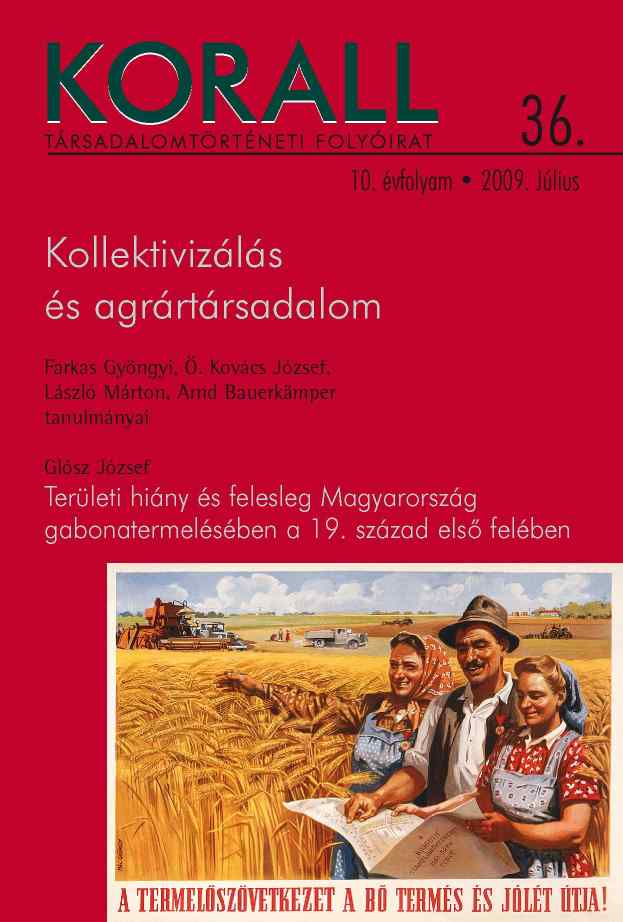„Sűrített népnevelő”. A kollektivizálás tapasztalattörténetei (1958–1959)
‘Condensed Mass Educator’: Narratives of Collectivisation Experiences (1958–1959)
Author(s): József Ö.KovácsSubject(s): History
Published by: KORALL Társadalomtörténeti Egyesület
Summary/Abstract: This political and socio-historical analysis demonstrates the factors of the dual communication of party nomenclature and the social responses to collectivization campaigns (individual and collective forms of adaptive resistance). Collectivisation is interpreted as one of the fundamental narratives of the socio-economic and political conflicts in Soviet-type dictatorships, social historical events of short- and long-term consenquence. In this study, this question transgresses the narrow concepts of agrarian-, peasant-, and local histories. Collectivisation is both a rural and urban historical phenomenon by virtue of the modes and effects of its enforcement. The author uses primarily contemporanous witnesses from different angles to prove that the mass annihilation of privately owned farms, and their merging into collective lands were only possible by coercion and means of administrative, psychological and physical terror. The mobilisation of the campaign is interpreted by the socialisation of political dictatorship, in which almost all individuals became active agents in the process. Although the sentiment of failure over 1956 was a determining factor in the process of collectivisation, on the basis of case studies the author argues that another focused campaign lasting until 1960 was necessary to make the majority of the farmers join the co-operatives. The term ‘condensed mass educator’ meant a police truncheon in informal language.
Journal: Korall - Társadalomtörténeti folyóirat
- Issue Year: 2009
- Issue No: 36
- Page Range: 31-54
- Page Count: 24
- Language: Hungarian

